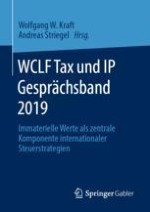2021 | OriginalPaper | Buchkapitel
From BEPS Action 1 to Unified Approach: Where is the OECD Heading?
verfasst von : Fernando Souza de Man
Erschienen in: WCLF Tax und IP Gesprächsband 2019
Verlag: Springer Fachmedien Wiesbaden
Aktivieren Sie unsere intelligente Suche, um passende Fachinhalte oder Patente zu finden.
Wählen Sie Textabschnitte aus um mit Künstlicher Intelligenz passenden Patente zu finden. powered by
Markieren Sie Textabschnitte, um KI-gestützt weitere passende Inhalte zu finden. powered by
